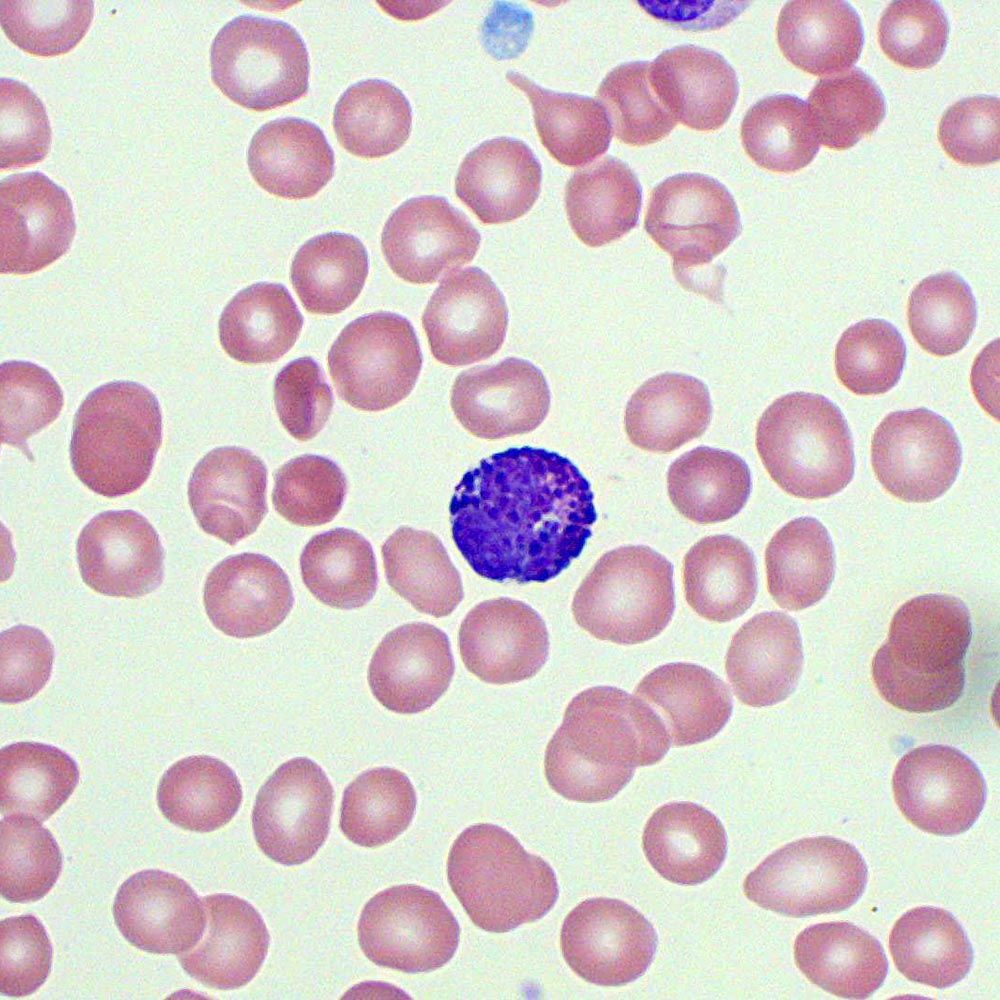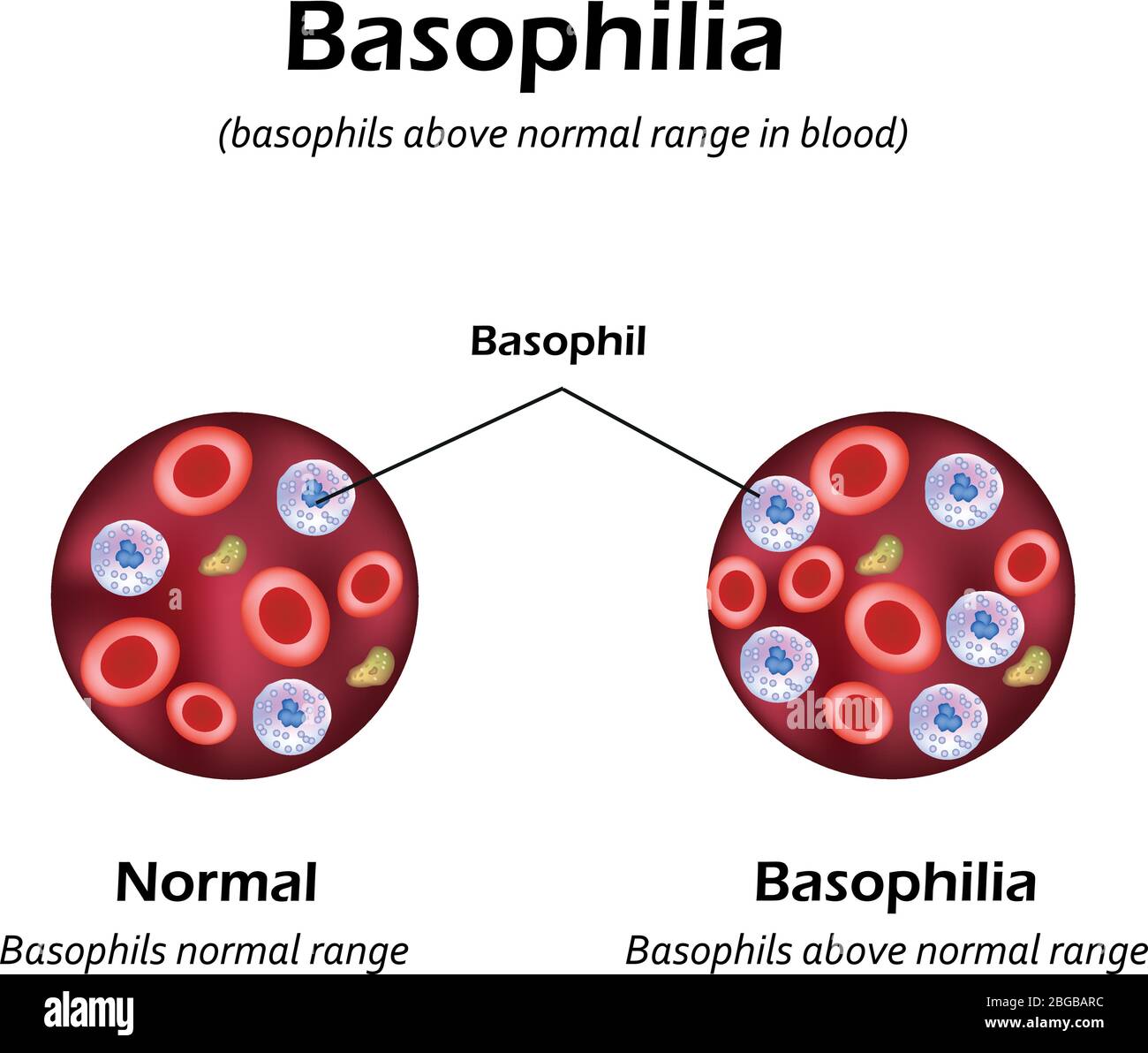Ever had one of those moments when your blood test results come back with "0.00 basophils" and you're like, what the heck does that mean? You're not alone! Basophils are tiny yet mighty players in your immune system, and when they're missing—or at least not showing up on your test—it can feel a bit alarming. But don't stress, we've got you covered. Let’s break it down and help you understand what this mysterious number means for your health.
Before we dive deep, let’s set the stage. Basophils are a type of white blood cell that plays a key role in your body’s defense system. They’re like the security guards of your bloodstream, keeping an eye out for intruders like allergens or infections. So, if your test says "0.00 basophils," it might sound scary, but it’s not always a big deal. Stick around, and we’ll walk you through everything you need to know.
Now, let’s get one thing straight: having 0.00 basophils doesn’t necessarily mean something’s wrong. Sometimes, it’s just a fluke of the test or a reflection of your body’s natural state at that moment. But if you’re worried, it’s always a good idea to chat with your doc. Let’s dig into the details so you can feel more informed about what’s going on with your blood.
Read also:Tobias Dorzon Nfl Career The Untold Journey Of A Rising Star
What Are Basophils Anyway?
Alright, let’s start with the basics. Basophils are a type of white blood cell that makes up a tiny portion of your immune system. They’re like the underdogs of the blood cell world—small in number but big in impact. Normally, basophils make up about 0.5% to 1% of your total white blood cells. But hey, don’t let their size fool you; these little guys pack a punch when it comes to fighting off infections and managing allergic reactions.
Basophils are known for releasing histamine, which is a chemical that helps your body respond to allergens. Think of them as the alarm bells that go off when something suspicious enters your system. Without basophils, your body might have a harder time reacting to allergens or infections. But again, having 0.00 basophils doesn’t automatically mean trouble. Sometimes, it’s just a blip on the radar.
How Do Basophils Work in the Body?
Now, here’s the cool part. Basophils are like the first responders of your immune system. When your body detects an allergen or infection, basophils jump into action by releasing histamine and other chemicals. This response can cause symptoms like swelling, itching, or redness, which are all part of your body’s defense mechanism. But here’s the thing: basophils are usually present in such small numbers that they can be hard to detect in a blood test. That’s why seeing "0.00 basophils" isn’t always a cause for concern.
Why Would a Blood Test Show 0.00 Basophils?
So, you’ve got your blood test results in hand, and there it is: 0.00 basophils. What gives? Well, there are a few reasons why this might happen. First off, basophils are super rare in the bloodstream. They’re more likely to hang out in tissues, so it’s not uncommon for them to be absent from a blood sample. Second, the timing of your test could play a role. If your body isn’t actively dealing with an infection or allergen at the time of the test, basophils might not show up.
Another possibility is that the test itself isn’t sensitive enough to detect such small numbers of basophils. Blood tests aren’t perfect, and sometimes they miss things. But if you’re still worried, it’s always a good idea to follow up with your doctor and maybe even get a second opinion.
Could It Be a Sign of Something Serious?
Here’s the thing: while 0.00 basophils isn’t usually a red flag, it could be a sign of an underlying issue in some cases. For example, certain medical conditions can affect your basophil count. Things like chronic inflammation, autoimmune disorders, or even certain medications can impact how many basophils are in your blood. But again, don’t panic just yet. Most of the time, it’s nothing serious.
Read also:What Happened To Trey Gowdys Nose Unveiling The Truth Behind The Controversy
Common Causes of Low Basophil Count
Let’s break it down. There are several reasons why your basophil count might be low—or even zero. Here are a few common culprits:
- Stress or Infection: When your body is dealing with stress or an infection, your immune system might shift its focus to other types of white blood cells, leaving basophils out of the picture.
- Medications: Certain drugs, like corticosteroids, can suppress basophil production.
- Chronic Conditions: Conditions like hypothyroidism or chronic inflammatory diseases can affect your basophil count.
- Test Variability: Sometimes, it’s just a quirk of the test. Blood tests aren’t always 100% accurate, especially when it comes to detecting rare cells like basophils.
Now, if you’re thinking, “Wait, what does this mean for me?” don’t worry—we’ll get to that in a bit. But first, let’s talk about how basophils are measured in the first place.
How Are Basophils Measured in Blood Tests?
Blood tests that measure basophils typically use a method called a complete blood count (CBC) with differential. This test breaks down the different types of white blood cells in your sample, including basophils. But as we mentioned earlier, basophils are pretty rare, so they can be hard to detect. That’s why you might see “0.00 basophils” on your results, even if they’re actually present in your body.
Some labs use more advanced techniques, like flow cytometry, to get a more accurate count of basophils. If your doctor thinks it’s necessary, they might order one of these tests to get a clearer picture of what’s going on with your immune system.
What Does a CBC Test Actually Show?
A CBC test gives your doctor a snapshot of your overall blood health. It measures things like red blood cells, white blood cells, platelets, and hemoglobin. The differential part of the test breaks down the different types of white blood cells, including neutrophils, lymphocytes, monocytes, eosinophils, and basophils. By looking at these numbers, your doctor can get a better idea of how your immune system is functioning.
When Should You Be Concerned?
Now, here’s the million-dollar question: when should you start worrying about a 0.00 basophil count? In most cases, it’s not a big deal. But if you’re experiencing symptoms like frequent infections, unexplained swelling, or severe allergic reactions, it might be worth investigating further. Your doctor can help you figure out if there’s an underlying issue that needs attention.
Also, keep in mind that basophils are just one piece of the puzzle when it comes to your immune system. If your other white blood cell counts are normal, it’s less likely that there’s a serious problem. But if you’re still unsure, don’t hesitate to ask for more tests or a second opinion.
What Should You Do Next?
If your blood test shows 0.00 basophils and you’re feeling uneasy, here’s what you can do:
- Talk to your doctor about the results and ask if further testing is needed.
- Monitor your symptoms and report any changes to your healthcare provider.
- Stay informed about your health and don’t be afraid to ask questions.
Living with a Low Basophil Count
So, you’ve got a low—or even zero—basophil count. What now? In most cases, you don’t need to make any drastic changes to your lifestyle. But if your doctor suspects an underlying issue, they might recommend some adjustments to help support your immune system. Here are a few tips:
- Eat a balanced diet rich in vitamins and minerals to boost your overall health.
- Get regular exercise to strengthen your immune system.
- Manage stress through techniques like meditation or yoga.
- Stay up to date on vaccinations to protect against infections.
Remember, having a low basophil count doesn’t automatically mean something’s wrong. It’s just one piece of the puzzle when it comes to understanding your overall health.
Can Lifestyle Changes Help?
Absolutely! While you can’t directly increase your basophil count, you can support your immune system through healthy habits. Eating a nutritious diet, getting enough sleep, and reducing stress can all help keep your immune system in top shape. And if your doctor recommends any specific treatments or supplements, be sure to follow their advice.
Final Thoughts: What Does 0.00 Basophils Really Mean?
Alright, let’s wrap this up. Seeing “0.00 basophils” on your blood test results might feel a bit unsettling, but in most cases, it’s not a big deal. Basophils are rare cells that play an important role in your immune system, but their absence in a blood test doesn’t always mean something’s wrong. Sometimes, it’s just a fluke of the test or a reflection of your body’s natural state.
If you’re still concerned, the best thing you can do is talk to your doctor. They can help you understand what the results mean for your overall health and whether any further testing is needed. And remember, your basophil count is just one part of a much bigger picture. Stay informed, stay healthy, and don’t be afraid to ask questions.
So, what’s next? Share your thoughts in the comments below! Have you ever had a blood test with 0.00 basophils? What did your doctor say? And don’t forget to check out our other articles for more tips on staying healthy and informed.
Table of Contents
- What Are Basophils Anyway?
- Why Would a Blood Test Show 0.00 Basophils?
- Common Causes of Low Basophil Count
- How Are Basophils Measured in Blood Tests?
- When Should You Be Concerned?
- Living with a Low Basophil Count
- Final Thoughts


